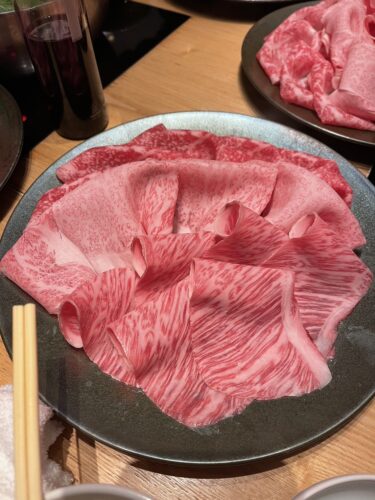みなさん、こんにちは。しゅんです。
今日は、西岡壱誠さんの「東大独学」を読んで個人的に共感、勉強になったポイント等を「3つ」共有させてもらいます。
※英語圏の方々はこちら以降をお読みください!
hello everyone. It’s Shun.
Today, I would like to share “three” points that I personally found empathetic and learned from reading “Todai Self-study” by Issei Nishioka.
* For English-speaking people, please read the following!
日本語 ver.
この本を一言で表すと

「独学における質を最大限まで高める方法を教えてくれる」本
本を読み終えての感想

①人間において精神的に一番辛いのは目的が見えない意味がないと思えることをリピートしないといけない時
例えば、自分で掘った穴を自分でまた埋める。これを永遠と繰り返すことは骨が折れる辛いことだと思う。
これと同じようなことが独学に対してもいえる。しっかりとした目的がないまま独学を進行すると、必ず「私は一体なぜこんなことをしているんだろう」「これを続けることが私にとってプラスに働くのか」等の思考に陥ってしまい、途中で放棄・挫折をしてしまいかねない。
ただし、先ほどの骨が折れる作業である「穴掘りループ」に目標を付け、ゲーム化したらどうだろうか。
例えば、穴堀りループを一番先に10回到達した人には「世界一周旅行券」をプレゼントというような具合だ。
目標がないまま穴掘りループを行うより、不思議とやる気が出てくる。
それから、これは何もプレゼントというような、外部からのご褒美に頼らなくても全然問題ない。
例えば、この穴掘りループを10回行うと、「体重が1kg減る」「筋肉量が0.5%増す」等、何かに付けて自分で目標を自由に設定すれば極論いい。
これでも不思議と目標がないまま穴掘りループを行うよりはやる気が出てくる。
つまり、独学は(独学に限らず何事にも)目的や目標をしっかりと定めることが重要なのである。
②インプットとアウトプットの間にはクエッションのフェーズが存在する
皆さんのほとんどは(僕もそうだ)仕事をする上で上司にあたる人がいると思う。
例えば、上司から仕事を依頼された際に、言われたことをそのまま一言一句なぞるような馬鹿正直にタスクをアウトプットして、怒られたことはないだろうか。
個人的には怒られる理由の大半は、タスクの目的を考えられずに言われたことだけをそのままアウトプットしてしまったことによるものではないかと思う。
「なぜあの人はあんなことを言ってたんだろう」「あの言動の真意は何だったんだろう」と自身で考え、上司から伝えられた以外の不足している部分を補完することにより、本当の意味でタスクが完了する。
独学も同じである。
書籍に記載されている内容をインプットしてそのままアウトプットしても、独学は完了しない。
先ほど例に挙げた仕事の話と同様に、インプットとアウトプットの間に「なぜそうなんだろう」「きっとこういった理由をよりどころにしているからなのかな」というような「クエッションフェーズ」を挟んで自身で考えることにより、本当の意味で独学が完了する。
つまり、インプットとアウトプットの間にはクエッションフェーズが存在するのである。
③なぜ自分がそれに取り組んでいるのかの目的を常に見失わないこと
なぜ物事に取り組んでいる最中に目的を失ってはダメかというと、「目的のある/なしで取り組みの質が大幅に前後するから」である。
例えば、勉強をするにしても、初めて教科書を読む際はある程度雑に読み進めると思う。なぜなら、とにかく早く新しい知識をインプットするためだ。
だが、理解を深める目的としてその教科書を2週目、3週目する場合はどうだろうか。
当然だが、初めて読む頃よりその教科書の内容を深く理解しようとするはずだ。
このように、「勉強をする」という同じ行為一つとっても、目的は異なるわけである。
ゆえに、物事に取り組んでいる最中に目的を失ってはダメなのである。
最後に

いかがでしたか・・・?
どういった内容の本だったかというのは詳細に記さず、あくまで共感、勉強になったポイント等にフォーカスして「3つ」紹介させてもらいました。
皆さんに共感してもらえるポイントが「1つ」でもありましたら、幸いです。
それでは今回はこの辺で!
English ver.
To describe this book in one word

A book that will teach you how to maximize the quality of your self-study
Impressions after reading the book

①The hardest thing mentally for humans is when you can’t see the purpose and have to repeat things that seem meaningless
For example, you can fill the hole you dug yourself. I think it would be painful to repeat this forever.
The same thing can be said for self-study. If you proceed with self-study without a solid goal, you will inevitably fall into thoughts such as “Why am I doing this?” You may end up giving up and becoming frustrated.
However, how about setting a goal for the “hole digging loop”, which is the painstaking work mentioned earlier, and turning it into a game?
For example, the first person to complete the hole-digging loop 10 times will receive a “round-the-world travel ticket” as a gift.
Rather than doing a hole-digging loop without a goal, I am strangely motivated.
Also, this is nothing like a present, so there is no problem if you don’t rely on external rewards.
For example, if you do this digging loop 10 times, you can set your own goals, such as “1kg weight loss” or “0.5% increase in muscle mass”.
Even with this, I am more motivated than doing a hole-digging loop without a goal.
In other words, it is important for self-study (not only for self-study but for anything) to have a clear purpose and goal.
②There is a question phase between input and output
I think most of you (like me) have someone who is your boss at work.
For example, when you were asked to do a job by your boss, have you ever been scolded for outputting the task in a foolishly honest manner, like tracing what you were told word for word?
Personally, I think most of the reasons people get mad at me are because I just output what they were told without thinking about the purpose of the task.
By thinking for yourself, “Why did that person say that?” and “What was the true meaning of that behavior?” In the sense that the task is completed.
The same goes for self-study.
Even if you input the contents described in the book and output it as it is, self-study will not be completed.
Just like the work story I gave as an example earlier, there is a “question phase” between the input and the output, such as “Why is that so?” Self-study is completed in a true sense by thinking for yourself.
In other words, there is a question phase between input and output.
③Never lose sight of the purpose of why you are doing it
The reason why you shouldn’t lose your purpose while working on something is that “with or without purpose, the quality of the effort fluctuates greatly.”
For example, even if you study, when you read a textbook for the first time, I think you will read it roughly to some extent. The reason is to input new knowledge as soon as possible.
But what if you go through the textbook for a second or third week for the purpose of deepening your understanding?
Of course, you should try to understand the contents of the textbook deeply from the time you read it for the first time.
In this way, the purpose of the same act of “studying” is different.
So don’t lose your purpose while working on things.
Lastly

How was it···?
I didn’t go into detail about what the book was about, but rather focused on empathy and points I learned from, and introduced “three”.
I would appreciate it if there was even one point that everyone could relate to.
That’s all for today!











